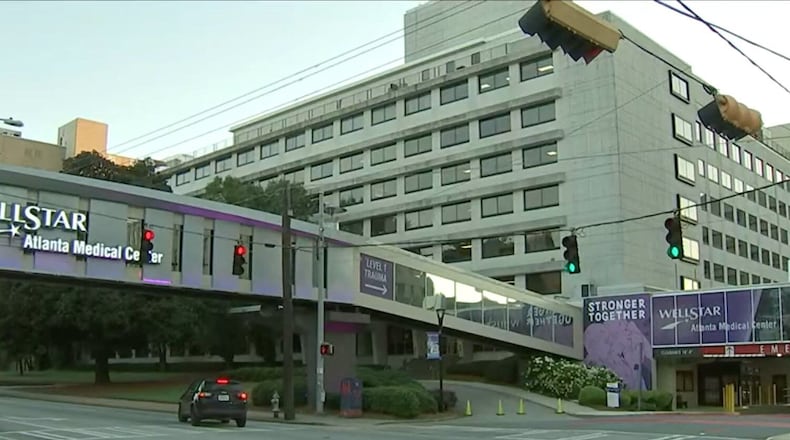Being number one for business has been the longstanding mantra guiding Georgia state policy. While many may agree this is a valuable goal, it is not inherently aligned with other goals that Georgians value, including economic success and prosperity and health and well-being for individuals and communities. The impending closure of the second Atlanta Medical Center (AMC) hospital serving the metro Atlanta region reflects not only the failure of our state’s business-first ethos, but leadership failures of our political leaders and those in the Wellstar Health System.
The closing of Wellstar’s AMC hospitals epitomizes the myopia of a business-first approach. Through a business-first lens, closing AMC South and AMC Midtown, hospitals providing care to many low-income and uninsured patients, might make sense. Why continue operating hospitals that were losing money and negatively impacting a health system’s financial bottom line? Clearly, Tenet, a for-profit health care company, understood this when they sold their Atlanta-based holdings to Wellstar six years ago. But Wellstar is different than Tenet, at least based on its tax status and filings.
Credit: contributed
Credit: contributed
As a not-for-profit, taxpayer-subsidized community hospital, one would reasonably expect that Wellstar has some level of responsibility to the communities it serves. Their 2022 Community Health Needs Assessment for the two AMC hospitals clearly spells out the higher levels of poverty and social barriers impacting the diverse, disproportionately Black and brown communities served by the two hospitals. Ironically, their report also outlines the existing challenges they intended to prioritize related to health outcomes, health inequities and access to care. In other words, they fully understood the profound unmet social and health care needs of the communities they are now abandoning. Maybe Wellstar leadership can help us understand how this wholesale abandonment aligns with their “People care Everywhere” brand and their recently established Center for Health Equity.
But Wellstar’s irresponsible business decision did not occur in a vacuum. It is entirely consistent with a state ethos that prioritizes financial bottom lines over human bottom lines, saving dollars over saving lives. Taxpayer-subsidized community hospitals need to have a much higher level of oversight to ensure they are fulfilling the requirements of their nonprofit status, but we also need a policy environment that supports our health care safety net.
While Wellstar acknowledged that our state’s failure to fully expand Medicaid was not the only reason for their hospital closures, it was unquestionably a strong contributing factor, as it was for the eight rural hospital closures over the past 10 years. Losses related to uncompensated care cannot be separated from the coverage gap that leaves over 500,000 Georgians uninsured from not expanding Medicaid.
Unfortunately, a focus on what’s best for business is often at odds with our state’s overall prosperity as reflected in our state’s lagging rankings in overall prosperity (37th, according to the Legatum Institute Prosperity Index), education (30th for K-12, according to U.S. News & World Report), and health outcomes (36th, according to United Health Foundation’s America’s Health Rankings Annual Report). Our number one for business ethos is also responsible for policies resulting in Georgia ranking 44th nationally for management of the COVID-19 pandemic, based on a recent Commonwealth Fund analysis, reflecting profound health inequities and among the highest COVID-related death rates in the country. In the same way that Georgia’s COVID policies disproportionately impacted low-income Black and brown communities, closing the AMC hospitals will predictably worsen our existing racial health inequities.
The human and financial costs of our state’s number one for business ethos are profound. We need a new mantra and state leadership that supports the economic growth and prosperity of businesses and communities, while ensuring equitable life and health opportunities for all Georgians.
Dr. Harry J. Heiman is a family physician and public health expert in Atlanta. He is a clinical professor in the Department of Health Policy and Behavioral Sciences at the School of Public Health at Georgia State University. The views expressed here are his own, and not those of GSU.
About the Author
Keep Reading
The Latest
Featured



